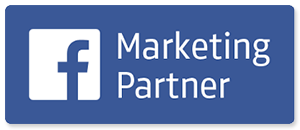If You are Competing on Price… You have a Marketing Problem.
Hi everybody, Andrew here. I am live from Los Angeles, California. I just got done surfing – no, I’m joking, I didn’t. I just got done speaking for two hours at the California Landscape Contractor Association’s Landscape Industry Show out here in Los Angeles at the Los Angeles convention center. You can see it right back there behind me; that’s it. Here in front of me, actually, is the Staples center. It’s right here. I didn’t know they were next door, so I imagine that the Lakers are probably scheduled to lose again tonight. So, I’m looking forward to that, but I had a great talk today. I spoke for two hours, if you can believe that.
Anybody who knows me knows that I’m generally a man of few words, so it was quite an exhausting talk. A lot of great questions at the end, and I just wanted to share a tidbit of what I talked about today. I talked about a wide variety of topics, obviously, all my marketing, how to grow your business with the latest on line marketing techniques, and one area in particular that spent quite a bit of time on is, how to stop competing on price. This is something that every small business owner runs into; this is something that I run into in my own business. We’re certainly not the cheapest marketing agency out there, but every business runs up against this, no matter if you’re a service business or you’re selling a product, at some point you’re going to be competing with a low‑cost competitor.
So, how do we battle that? What do we do? Well, let me start off with an example that I think hopefully everybody can relate to. Let’s think about Apple. Apple makes the iPhone of course, and the iPad and their biggest competitor is Samsung, who makes the Galaxy S3 phone. As you can tell, I’m a bit of a tech geek. One of the examples I gave is, Apple only sells 20% of the Smartphones in their market, but they make 75% of the profit think about that. They only own 20% of the market, they only do 20% of the sales, but they take home 75% of the profit. That’s pretty huge.
Now, let’s also talk about Starbucks. Starbucks, I go to Starbucks, I pay almost $5 for a medium latte. I can go to McDonald’s; I can get the same size coffee for 99 cents. There’s a 500% markup. So, think about those two examples. Is the iPhone or the iPad that much better, leaps and bounds better than the closest competitor, Samsung’s devices? Is a Starbucks coffee worth 5 times as much as a McDonald’s cup of coffee? I mean, personally, I really like McDonald’s coffee in comparison to Starbucks, but that’s another topic but think about that.
So what differentiates these two huge companies? What makes them be able to charge a premium for their products? The answer is marketing. It’s a marketing thing. Starbucks has positioned themselves as the go to company for a great cup of coffee. Apple has positioned themselves as the company to go for with the coolest, trendiest, most high‑tech gadgets and that’s the way that they’ve positioned themselves.
So when you compete on price, and you’re constantly battling low‑ballers in your industry, the reason is you have a marketing problem. Your marketing is not differentiating you enough between you and your competitors. So, when you look the same as your competitors in your marketing, in your marketing message, and you sound the same in your marketing and in your marketing message as all of your competitors, think about what that leaves your consumers to make a decision on. If everybody in their market is offering a commodity service and everybody looks and sounds the same, the only difference is your price.
So, this is where you have to do a better job in your marketing. You need to differentiate why you’re different. You need to list all of your unique selling points; the fact that you have insurance, the fact that you’ve been in business for ages, the fact that you have your license to use specific chemicals to do the different things that you do as a business owner. All of these are your unique selling points.
Let’s go back to Apple. Apple, whenever they release a new product, they produce a 5 minute video going into minute detail about how much time that they took to produce the glass, to cut the chassis of their new iMac, Macbook. How much time that they took, and how much effort and attention to detail that they spent to produce this product. Well, I hate to break it to you, but pretty much all smart phones are proud more or less the same way. But because Apple’s gone to the trouble of really differentiating themselves and really breakdown the details of how they do their process, they’ve made that process their own unique selling point, even though all of their competitors make their smart phones exactly the same way.
So, when it comes to stopping competing on price, you have to do a better job with your marketing. You have to do a better job differentiating yourself from everybody else in your market that does the same things. Yes, there’s always going to be consumers that are only going to want to buy based on price, and they’re not your ideal customers, and that’s always going to be the case. But the goal here is to be the premium company charging premium prices for premium services and in order to do that, you have to be a better marketer. The more meaningful differences that you can highlight, the more of a premium you can charge. So, think about that. I hope that gives you a good perspective on pricing strategy and marketing strategy. Andrew, over and out. I’m going to go back to the beach. See ya!
Incoming search terms:
- i love marketing
























Follow @LawnCareMktg